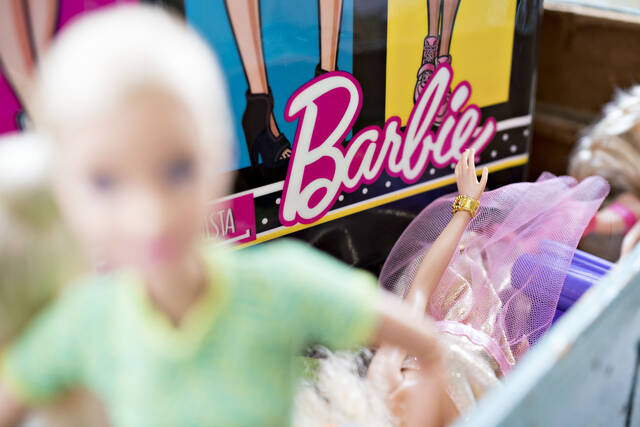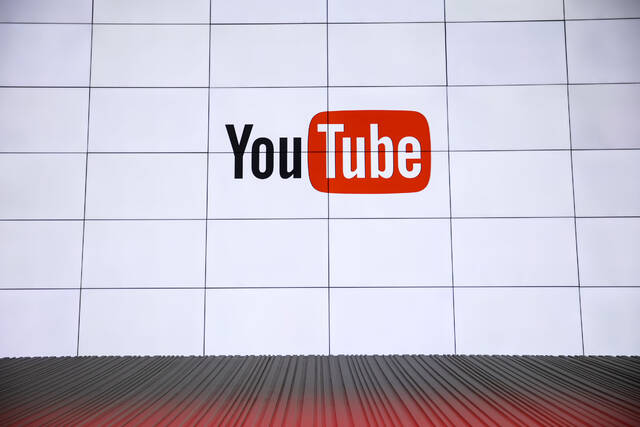On Aug. 12, 1928, an ambitious young man named Walt Disney filed a copyright application for Mickey Mouse, a new animated character he’d created alongside animator Ub Iwerks.
That turned out to be a successful business move for Disney, who would go on to build his character into an international entertainment empire.
Disney officials also lobbied for current federal copyright law to extend up to 95 years, a move which was derisively referred to as “The Mickey Mouse Protection Act.” Beginning in 2024, however, aspects of the Mickey Mouse character have entered the public domain. This year a dozen new Mickey Mouse films will enter public domain, including the 1929 classic “Haunted House,” where Mickey is forced to entertain the Grim Reaper and a gang of, you might say, spooky scary skeletons.
The Disney Corp. is hardly the only business entity that guards its copyrights fiercely. Here are a handful of the most notable court cases over the years involving copyright protection and infringement.
Star Wars (Fox) vs. Battlestar Galactica (Universal)
In 1978, Twentieth Century Fox sued Universal Studios, arguing that Universal’s “Battlestar Galactica” had borrowed elements from “Star Wars,” which was released a year earlier.
Despite similarities in character designs, battle scenes and some plot elements, Universal counter-sued, claiming “Star Wars” had itself borrowed from earlier science-fiction works.
The case was dismissed after two years, with the court siding in favor of Universal.
Apple vs. Microsoft
In 1988, Apple sued Microsoft, claiming Microsoft had copied its graphical user interface in creating the Windows 2.0 operating system. A graphical user interface is what many desktop computer users would consider the “home screen,” where various parts of the computer can be accessed through icons and folders through the use of a mouse.
Apple accused Microsoft of illegally replicating several crucial design features without the proper licensing. Later, documents revealed that Apple had granted Microsoft permission to use some of the interface elements through a prior agreement. The court sided with Microsoft, and the landmark patent law case outlines the complexity of ownership when it comes to an abstract piece of intellectual property like software design.
Barbie (Mattel) vs. Bratz (MGA)
In 2008, Mattel filed suit against MGA Entertainment over MGA’s line of “Bratz” dolls.
Mattel claimed that Bratz’s creator, Carter Bryant, had developed the idea for the dolls while employed at Mattel, asserting that Mattel owned the intellectual property.
MGA counter-sued, accusing Mattel of using spy-craft and underhanded tactics to thwart their business model. MGA ultimately won a $170 million award from the courts, though Mattel later appealed.
Naruto vs. Slater
Once upon a time, a macaque monkey named Naruto took a selfie while in possession of wildlife photographer David Slater’s camera. And then People for the Ethical Treatment of Animals filed a lawsuit claiming the photo was the monkey’s intellectual property.
Slater — and the court — both took the position that copyright law does not extend to animals, and dismissed the case. Despite its seemingly ridiculous nature, the case did raise broader questions about authorship, animal rights and intellectual property law.
In 2017, PETA and Slater reached a settlement on appeal by which Slater would donate 25% of future revenue from the photos to groups that protect macaques. Both sides also asked the 9th U.S. Circuit Court of Appeals to dismiss the case and to throw out the lower court decision about animals owning copyrights.
Viacom vs. YouTube
In 2007, Viacom sued YouTube for $1 billion, accusing the internet platform of allowing users to upload more than 150,000 copyrighted Viacom-owned videos without permission.
YouTube attorneys cited the Digital Millennium Copyright Act, claiming that as a service provider, it isn’t responsible for user-uploaded content. As the case proceeded, Viacom complicated their argument when it was revealed that they had secretly uploaded YouTube content for promotional purposes. The court ultimately sided with YouTube, a case that helped shape how digital content sharing works today.
Disney vs. MidJourney
To circle back where we started, in a case filed less than two months ago, Disney and several affiliate production companies filed a federal lawsuit against the AI image-generating platform MidJourney, marking the first major legal tussle between the mainstream entertainment industry and a generative AI business.
The complaint includes side-by-side comparisons of Disney’s original works and AI-generated replicas, offered as direct evidence of copyright infringement. The plaintiffs also argue that MidJourney’s AI model was trained using copyrighted content, and therefore enables users to produce derivative content that infringes on protected intellectual property.
The case has yet to be decided.

















